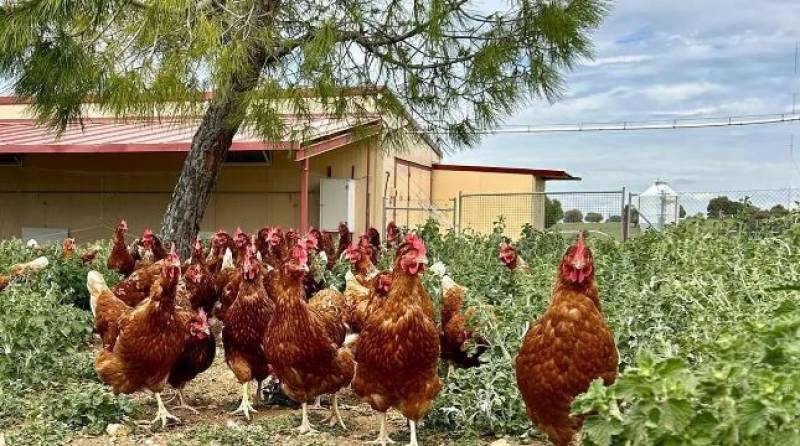- Region
- Águilas
- Alhama de Murcia
- Jumilla
- Lorca
- Los Alcázares
- Mazarrón
- San Javier
-
ALL AREAS & TOWNS
- AREAS
- SOUTH WEST
- MAR MENOR
- MURCIA CITY & CENTRAL
- NORTH & NORTH WEST
- TOWNS
- Abanilla
- Abarán
- Aguilas
- Alamillo
- Alcantarilla
- Aledo
- Alhama de Murcia
- Archena
- Balsicas
- Blanca
- Bolnuevo
- Bullas
- Cañadas del Romero
- Cabo de Palos
- Calasparra
- Camping Bolnuevo
- Campo De Ricote
- Camposol
- Canada De La Lena
- Caravaca de la Cruz
- Cartagena
- Cehegin
- Ceuti
- Cieza
- Condado de Alhama
- Corvera
- Costa Cálida
- Cuevas De Almanzora
- Cuevas de Reyllo
- El Carmoli
- El Mojon
- El Molino (Puerto Lumbreras)
- El Pareton / Cantareros
- El Raso
- El Valle Golf Resort
- Fortuna
- Fuente Alamo
- Hacienda del Alamo Golf Resort
- Hacienda Riquelme Golf Resort
- Isla Plana
- Islas Menores & Mar de Cristal
- Jumilla
- La Azohia
- La Charca
- La Manga Club
- La Manga del Mar Menor
- La Pinilla
- La Puebla
- La Torre
- La Torre Golf Resort
- La Unión
- Las Palas
- Las Ramblas
- Las Ramblas Golf
- Las Torres de Cotillas
- Leiva
- Librilla
- Lo Pagan
- Lo Santiago
- Lorca
- Lorquí
- Los Alcázares
- Los Balcones
- Los Belones
- Los Canovas
- Los Nietos
- Los Perez (Tallante)
- Los Urrutias
- Los Ventorrillos
- Mar De Cristal
- Mar Menor
- Mar Menor Golf Resort
- Mazarrón
- Mazarrón Country Club
- Molina de Segura
- Moratalla
- Mula
- Murcia City
- Murcia Property
- Pareton
- Peraleja Golf Resort
- Perin
- Pilar de la Horadada
- Pinar de Campoverde
- Pinoso
- Playa Honda
- Playa Honda / Playa Paraíso
- Pliego
- Portmán
- Pozo Estrecho
- Puerto de Mazarrón
- Puerto Lumbreras
- Puntas De Calnegre
- Region of Murcia
- Ricote
- Roda Golf Resort
- Roldan
- Roldan and Lo Ferro
- San Javier
- San Pedro del Pinatar
- Santiago de la Ribera
- Sierra Espuña
- Sucina
- Tallante
- Terrazas de la Torre Golf Resort
- Torre Pacheco
- Totana
- What's On Weekly Bulletin
- Yecla


- EDITIONS:
 Spanish News Today
Spanish News Today
 Alicante Today
Alicante Today
 Andalucia Today
Andalucia Today
Date Published: 21/01/2025
Bird flu epidemic forces Spanish farms to keep poultry indoors
ARCHIVED ARTICLE -
Avian influenza is spreading throughout Europe, with several new outbreaks reported in Spain, Portugal and France

Europe is in the midst of the worst bird flu epidemic in recent history and as cases continue to rise, the Ministry of Agriculture in Spain is taking drastic measures. As of this week, chicken farms will have to keep their birds indoors to reduce the risk of poultry coming into contact with infected wild birds.
In the last few days, outbreaks of bird flu have increased significantly and the potentially deadly disease has been recorded in every corner of Spain. It’s sweeping through France and Portugal and a couple of weeks ago, the United States reported the first death of a person who contracted bird flu.
In the rest of Europe, with the drop in temperatures and the increase in migratory movements of wild birds at this time of year, the circulation of the virus has also increased. In the last four weeks it has caused a total of 99 cases in wild birds in 14 countries, another 23 cases in captive birds in seven countries, and 33 outbreaks in poultry in eight countries, most of them concentrated in Central Europe.
The current situation "makes it advisable to increase the level of risk at a national level and apply risk mitigation measures in order to take a preventive approach in application of the precautionary principle," Ministry spokesperson Luis Planas said.
What is prohibited in high-risk areas?
In parts of Spain which have been deemed high-risk, the use of certain bird species including ducks, geese, swans, gulls, plovers and seabirds as decoys is prohibited, as these are known to attract wild birds.
The breeding of ducks and geese with other species of poultry is banned, and captive-bred birds can no longer be kept outside.
Where this is not possible, the keeping of poultry outdoors may be authorised, by placing, if possible, bird netting or any other device that prevents the entry of wild birds, and "provided that the birds are fed and watered inside the facilities or in a shelter that prevents the arrival of wild birds and prevents their contact with food or water intended for poultry".
Bird farmers shouldn’t give their poultry water from tanks or troughs that wild birds have access to unless the water has been specifically treated against avian influenza and, until further notice, livestock shows are on hold.
Since July 1 last year, around twenty cases of avian influenza have been reported in Spain. Most of them have been wild birds (mainly different species of seagulls), except for one case of a captive bird. The reported outbreaks have been located in Galicia (19), Castilla y León (1) and Catalonia (1).
Image: Pixabay










